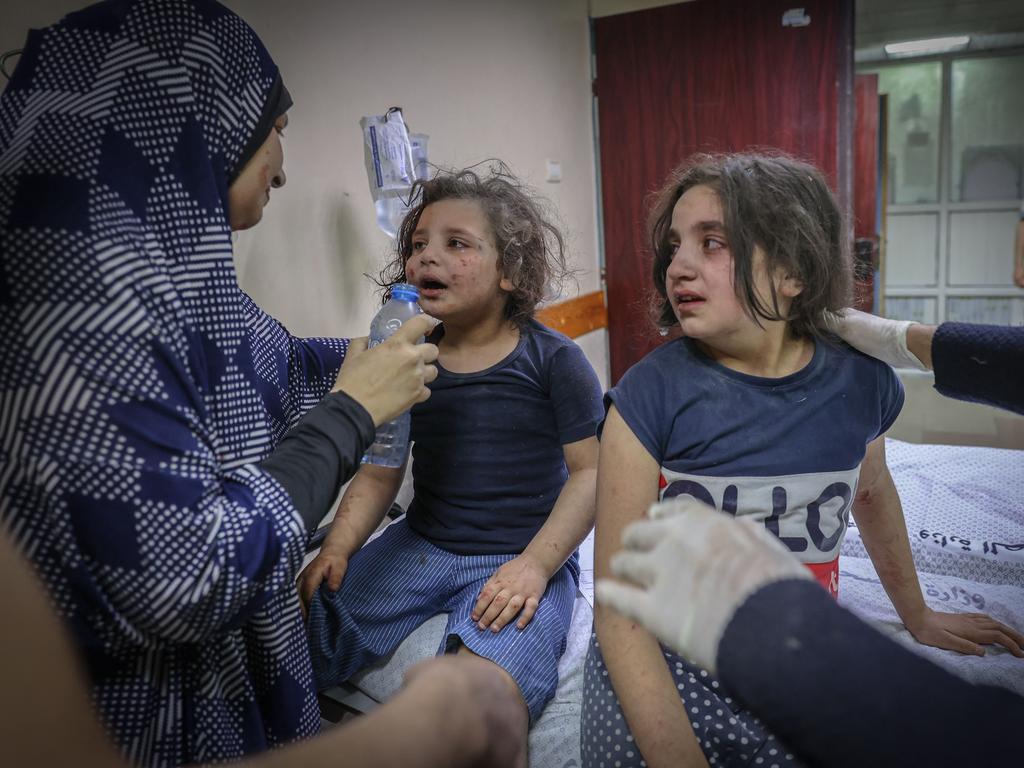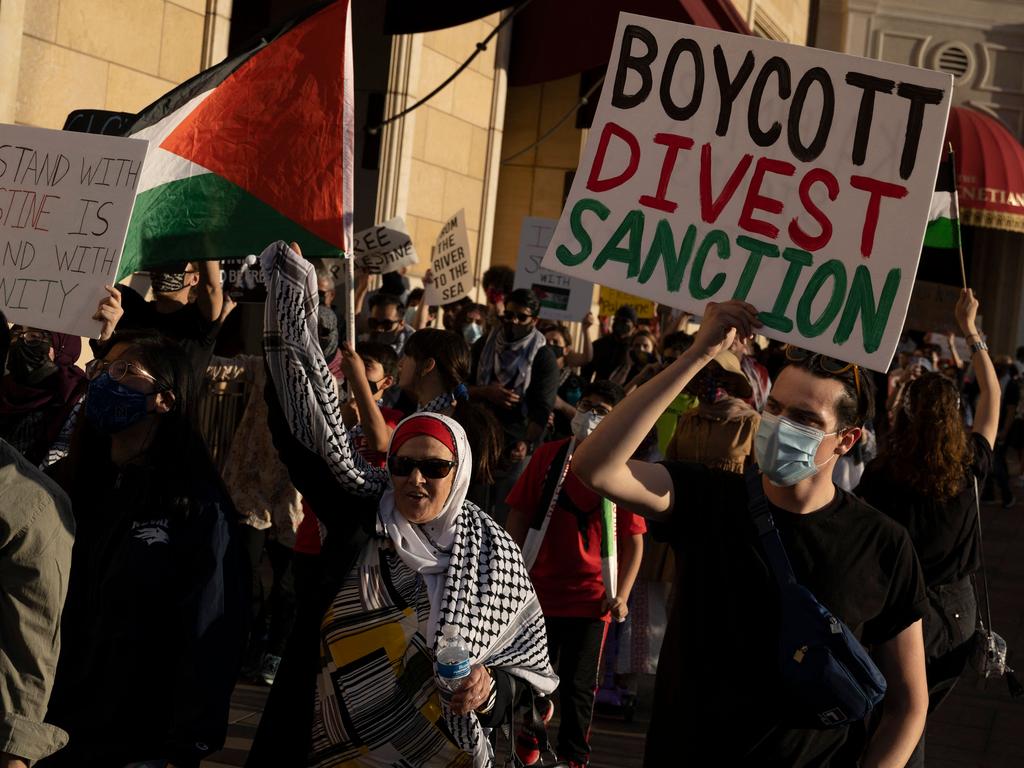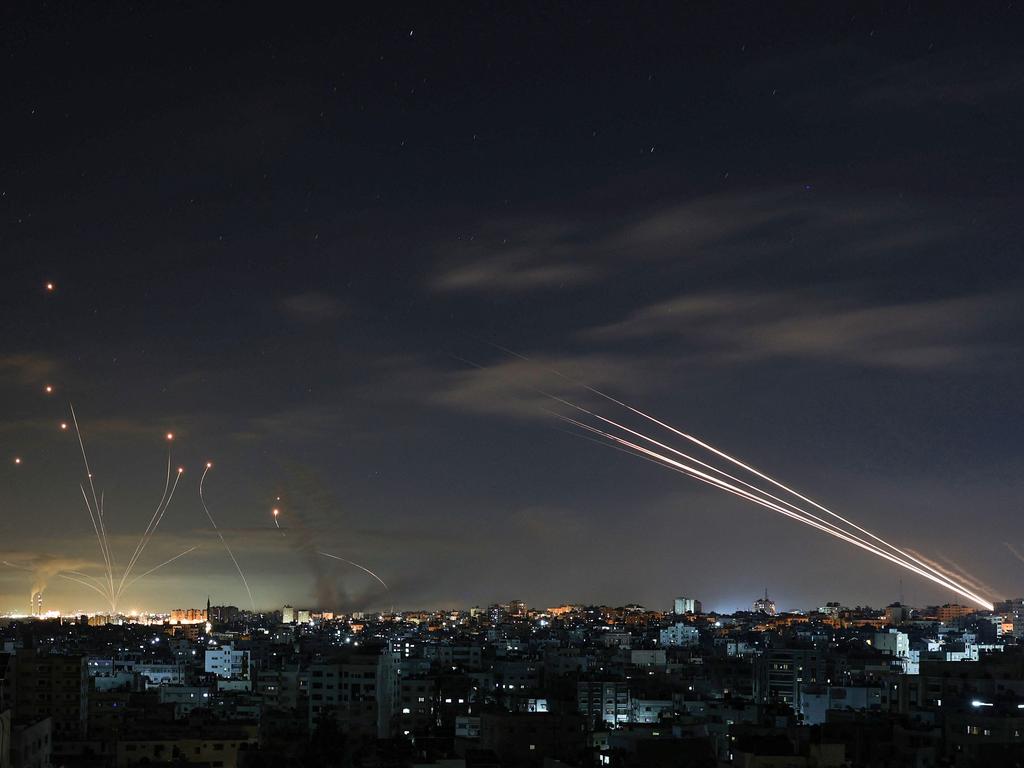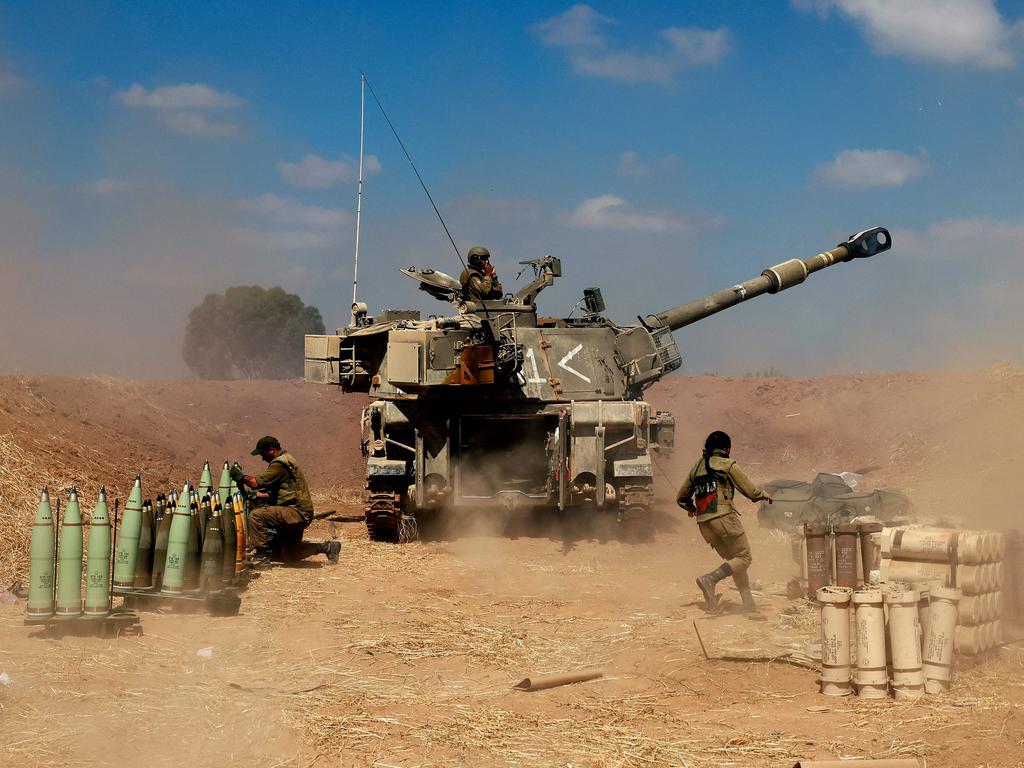Israel strikes kill 42 in Gaza as UN Security Council meets
Israeli strikes kill 42 Palestinians and 3000 rockets are fired from Gaza; Netanyahu defends attack on media tower.
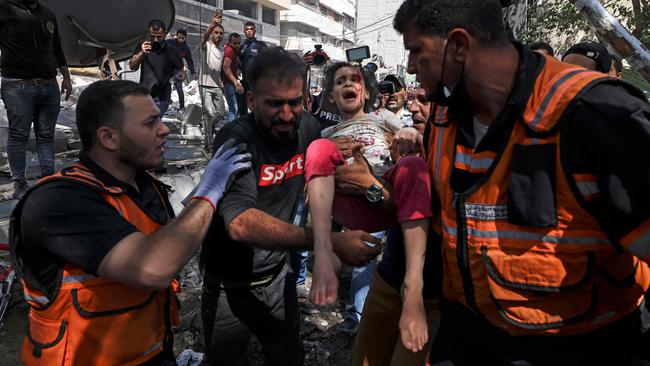
Israeli strikes killed 42 Palestinians in the Gaza Strip on Sunday, the worst daily toll yet in almost a week of deadly clashes, as the UN Security Council met amid global alarm at the escalating conflict.
UN Secretary-General Antonio Guterres pleaded for an immediate end to the “utterly appalling” violence and warned of an “uncontainable security and humanitarian crisis”.
But the council meeting, already delayed by Israel’s ally the United States, resulted in little action.
It came as Israeli Prime Minister Benjamin Netanyahu defended Saturday’s attack on a high rise tower in Gaza that housed the bureaux of a number of media organisations, including Associated Press and Al Jazeera.
Amid international condemnation of the airstrike, Mr Netanyahu told CBS the tower was a “legitimate” target because it also housed a Palestinian militant group’s intelligence offices.
The heaviest exchange of fire in years, sparked by unrest in Jerusalem, has killed 197 in Gaza since Monday, along with 10 in Israel, according to authorities on either side.
Israel said Sunday morning its “continuing wave of strikes” had in the past 24 hours struck over 90 targets across the crowded coastal enclave, where an Israeli strike that destroyed a building housing journalists’ offices sparked international outrage.
The death toll kept rising in Gaza on Sunday as rescuers extracted bodies from vast piles of smoking rubble and the bereaved wailed in grief.
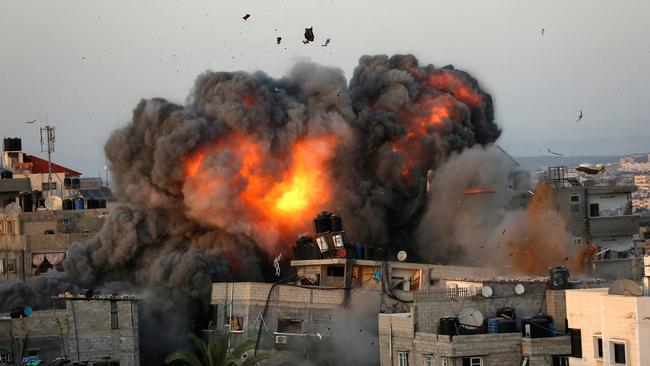
“We were sleeping and then all of a sudden there were rockets raining down on us,” said Lamia al-Koulak, 43, who lost siblings and their children in dawn bombardment.
“The children were screaming. For half an hour we were bombarded without prior warning. We came out to find the building next door flattened.”
But Mr Netanyahu said the campaign would “take time”. “Our campaign against the terrorist organisations is continuing with full force. We are acting now, for as long as necessary, to restore calm and quiet to you, Israel’s citizens,” he said in a televised address.
Israel’s army said Sunday that about 3000 rockets had been fired from the coastal strip towards Israel — the highest rate ever recorded.
Around 450 fell within the Gaza Strip, while the Iron Dome anti-missile system intercepted over 1000, the army said.
Rockets have wounded over 280 people, hitting districts that had previously been well beyond the range of Hamas rockets.
Army chief Aviv Kochavi said Israel had reacted with unprecedented force. “Hamas misjudged the strength of our response,” he said on Sunday.
In separate calls at the weekend, US President Joe Biden urged Mr Netanyahu and Palestinian National Authority president Mahmoud Abbas to negotiate.
While supporting Israel’s right to defend itself against Hamas rocket attacks, Mr Biden also urged Mr Netanyahu to protect civilians and journalists.
Israeli air strikes flattened the home of Hamas leader Yehya Sinwar, but it was unclear if he was killed.
At least 58 children have died in Gaza, local health authorities said, more than 1200 people have been wounded and entire city blocks smashed to rubble.
Gaza health authorities said 40,000 people had been displaced from their homes since Monday.
Save the Children warned that life-saving services were “at breaking point” after Israeli strikes damaged power lines.
“Now basic supplies and power are running low, compounding and further fuelling this humanitarian catastrophe,” said the charity’s country director Jason Lee.
The Israel army says it takes all possible precautions to avoid harming civilians, and blames Hamas for deliberately placing military targets in densely populated areas.
Israel’s acting ambassador in Canberra, Jonathan Peled, has briefed the Prime Minister’s Office and the Department of Foreign Affairs and Trade on the conflict.
He said Israel was doing its best to hit only military targets, “but unfortunately people in the way are going to get harmed and killed”. “The cynical and tragic reality is they are hiding within their own population. They are using their own population as human shields,” Mr Peled said.
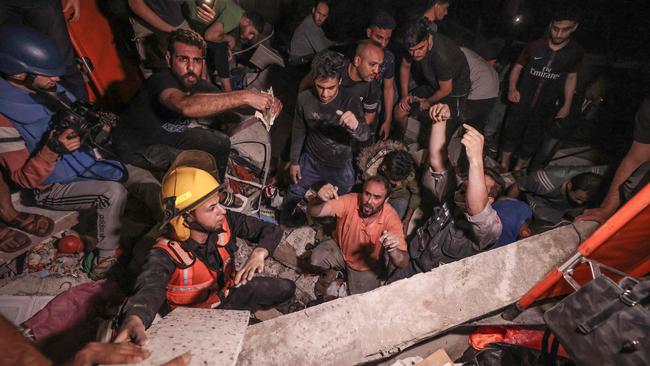
He said his country was encouraged by Scott Morrison’s declaration on Friday that Israel had a right to defend itself, and that he would “continue briefing our friends and all political leaders from both sides of the aisle”.
But the head of the General Delegation of Palestine to Australia, Izzat Abdulhadi, urged Australia to lobby Israel to end its bombardments of Gaza. Mr Abdulhadi said renewed violence was a turning point for the Palestinian cause, drawing thousands to marches in Australian capital cities by protesters condemning Israel’s behaviour.
He said the world needed to talk “not only about Hamas as a terrorist organisation”, but about “state terrorism by Israel”.
“It is time for Australia and the international community to seek justice and a balanced position towards both parties,” he said.
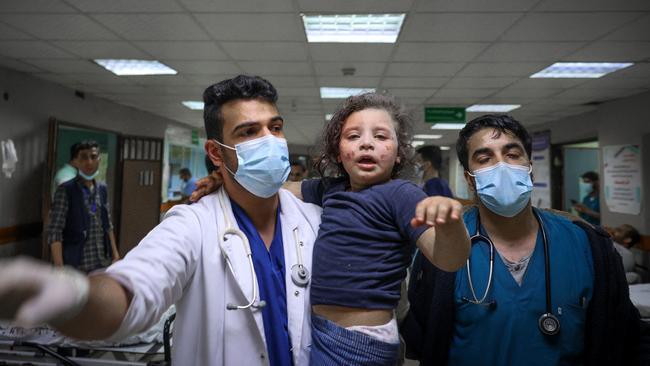
The fighting is the most intense between Israel and Hamas since 2014. It began with Palestinian protests over evictions from homes claimed by Israeli settlers, and the storming of the Al-Aqsa Mosque – one of Islam’s holiest sites – by Israeli police in a crackdown on protesters.
Thousands of people marched in Sydney and Melbourne on Saturday in support of Palestinians, chanting “Free Gaza” and “Long Live Palestine”. Australia’s Grand Mufti, Ibrahim Abu Mohammed, told the crowd in Sydney he was saddened by deaths of seven members from one family in recent attacks, including a bride-to-be.
But Liberal MP Dave Sharma, Australia’s ambassador to Israel in 2014, said Hamas’ rocket attacks on Israeli civilian populations were “indefensible and against the laws of armed conflict”.
“Trying to ascribe some sort of moral equivalence between the actions of Israel and Hamas is at once naive and preposterous,” he writes in The Australian.
Victorian Labor MP Peter Khalil, whose parents immigrated to Australia from Egypt, said the 70-year conflict would not be resolved while Palestinians suffered injustice, and Hamas continued to “use violence and exploit the conflict for their narrow self-interest”.
“As one of the world’s oldest democracies, and a middle power with diplomatic influence, Australia should play a more active diplomatic role alongside other countries and the UN to bring the parties to the negotiating table and effect a truce,” he said.
With AFP


